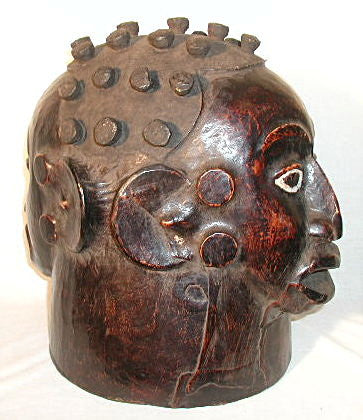ArtTribal.com
Janus-type Headdress
ArtTribal.com
Sold
The Ejagham are found in the easternmost part of southern Nigeria and in the contiguous area of the western Cameroon. They are hoe agriculturists and their main crops are yam, coconut and maize. The Ejagham produced skin-covered wooden headdresses and masks of a demonic naturalism. Earlier skins of slaves, later skins of antelopes, were used. It is presumed that all masks represented ancestors. Janus-type, two-faced masks, have mythological significance: one face representing Father Heaven, the other Mother Earth. The Ejagham masquerades performances generally took place at the initiation or funerals of members of the associations, and also at periodic rites connected with agriculture. The skin covering of a mask served as a magical agent to invoke ancestral spirits, thus eroding the barrier between living and dead participants in communal rituals.
Product Details:
- Size: 13" x 15" x 9"
- Shipping: 80.00
- Material: Wood, antelope skin
- Quantity: Sorry, this product is not available
- SKU:









